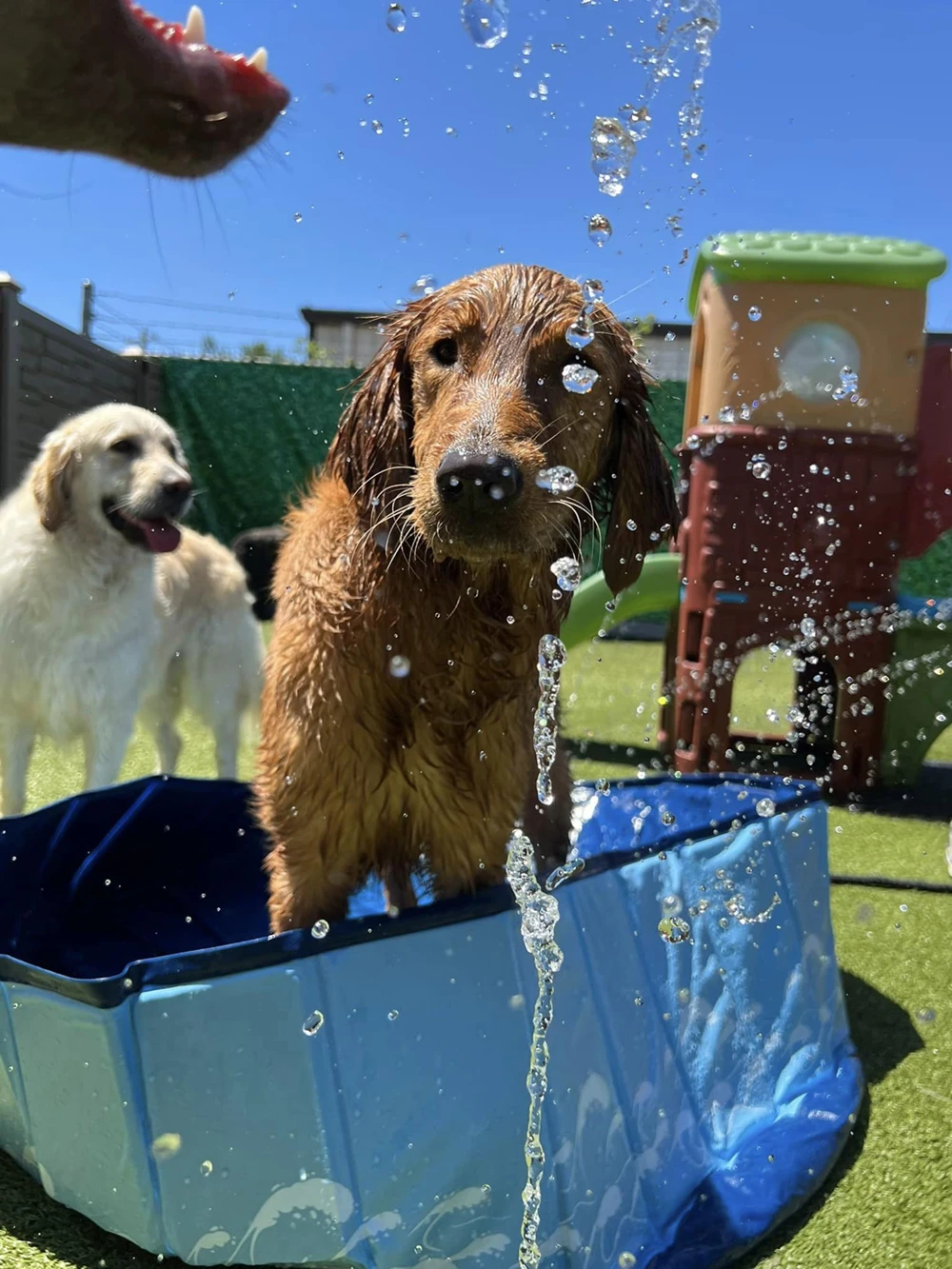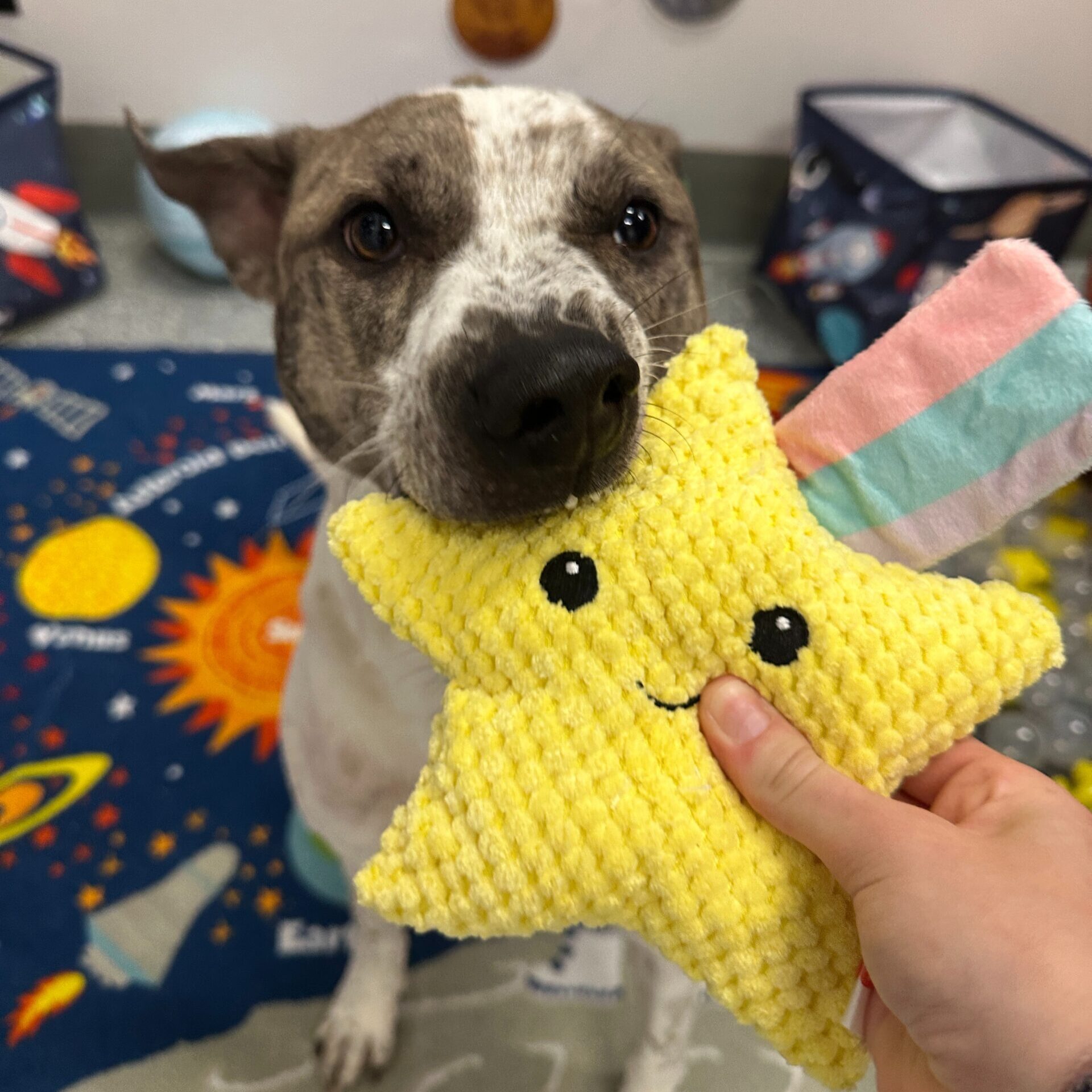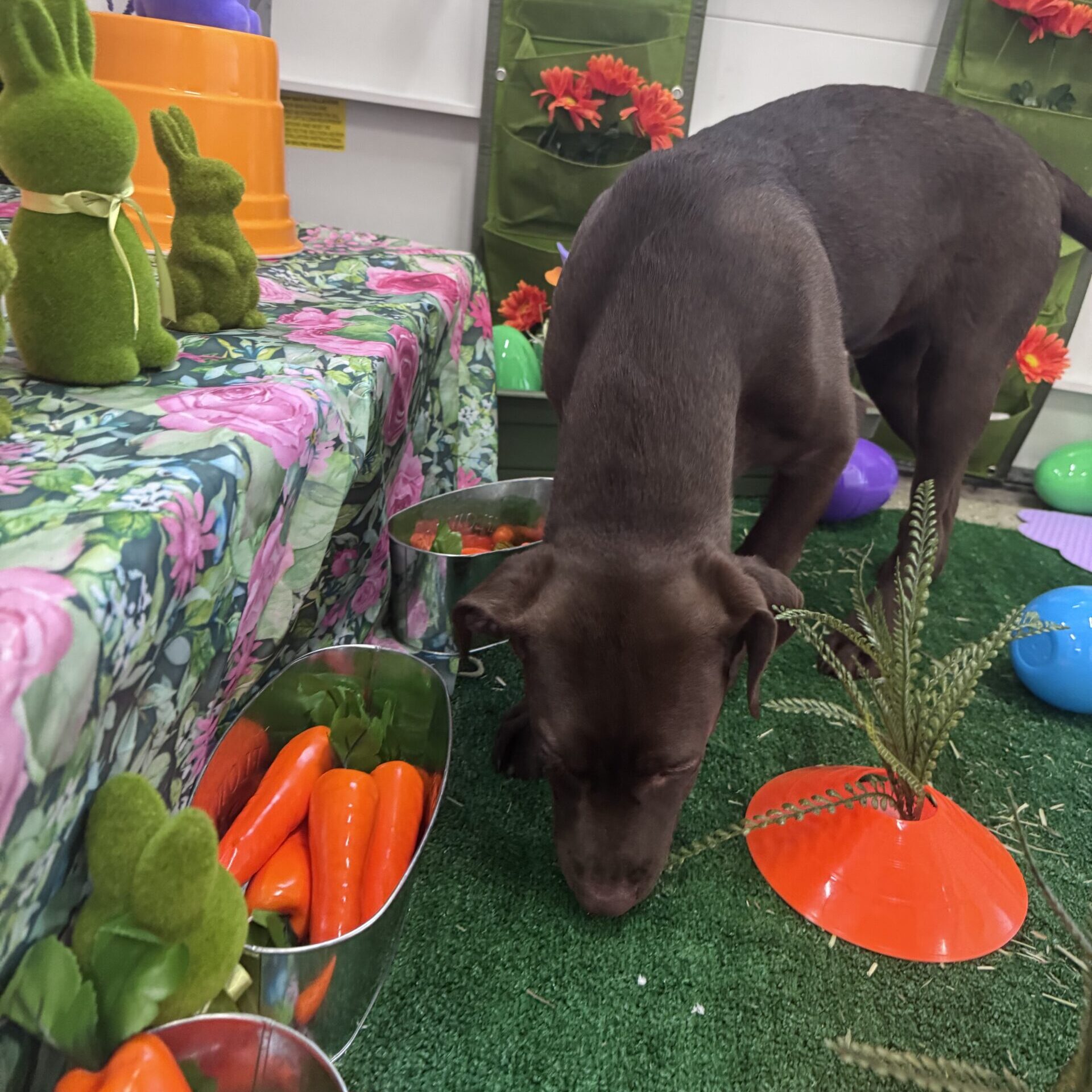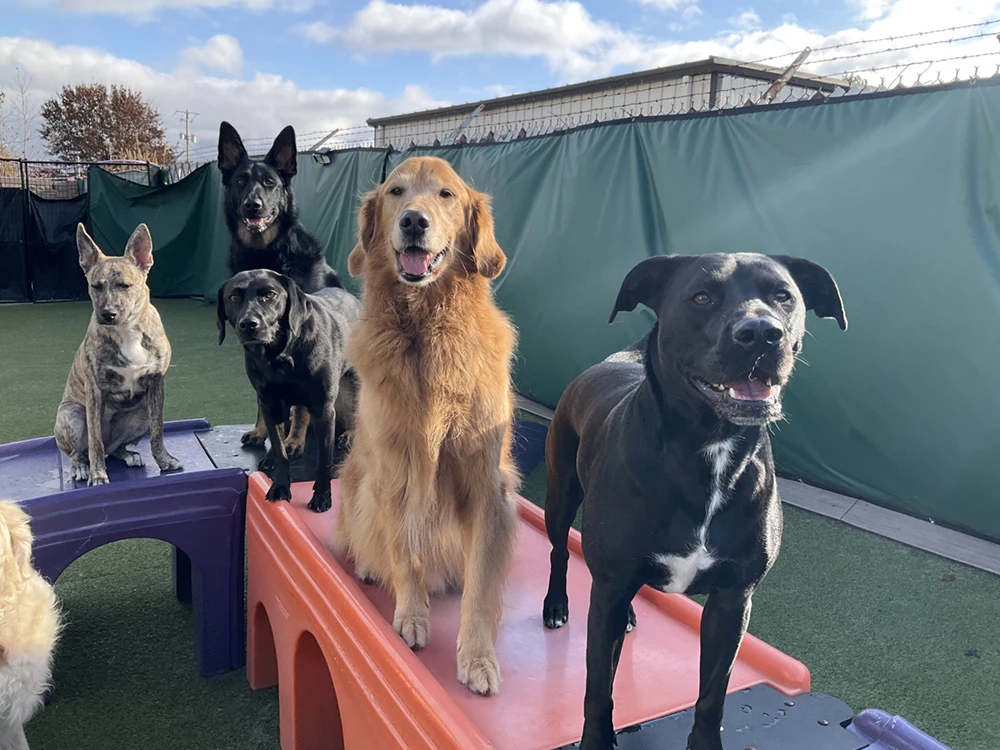Pet Poison Prevention

Each year in the US, over 200,000 dogs and cats are accidentally poisoned in their own homes.
The good news is that most of these cases are preventable. The most common sources of poisoning occur from certain foods, plants, medication, household chemicals, blue/green algae, and lawn/pest care.
You can protect your pets from these dangers by being aware of them and taking preventive measures.
If your pet does come in contact with a toxic substance, it’s crucial to contact your veterinarian or Poison Control for directions to treat the accidental ingestion.
There are some foods that people can eat that are poisonous to pets. The following list is of common foods that pets should not ingest.
- Alcohol – Can cause intoxication, coma, and death.
- Apricots – Pits contain cyanide, which can result in respiratory difficulty, seizures/death.
- Avocados- Can cause vomiting and diarrhea.
- Cherries – Cyanide in the stems and pits can cause seizures and death.
- Chocolate – Toxic to the heart and nervous system.
- Cooked bones – Can cause stomach/intestinal lacerations.
- Dough with yeast – Can cause stomach or intestinal rupture.
- Fatty foods – Can cause pancreatitis.
- Grapes (raisins) and currents – Can cause kidney failure.
- Mushrooms (some types) – Can cause shock and death.
- Onions and garlic – Can cause blood cell damage and anemia.
- Peach pits – Contain cyanide and can cause seizures and death.
- Raw potatoes – Can cause gastrointestinal distress, tremors, lethargy, confusion, and death
- Star fruit- Kidney failure
- Walnuts and macadamia nuts can cause nervous system and muscular damage.
- Xylitol (a sweetener found in gum, candy, and some energy bars)- Can cause liver failure, hypoglycemia, and death.
Many household plants are toxic to pets. Some common plants include Dieffenbachias, mistletoe, holly, oleander, daffodils, tulips, rhododendrons, and lilies, to name a few. Some plants only cause mild gastrointestinal distress when ingested, but other plants are highly poisonous and can cause heart dysrhythmias, seizures, kidney damage, and death. Do not allow your pets to chew on plants. If your pet has ingested part of a plant, get whatever you can out of their mouth, and call your veterinarian or poison control for further instruction. For a more complete list of toxic plants, see https://www.aspca.org/pet-care/animal-poison-control/dogs-plant-list

Always keep your medications, both prescription and over-the-counter, out of reach of pets. Many human medications are poisonous to pets.
Common human medications accidental ingestions that lead to toxicity in dogs include Advil (Ibuprofen), Tylenol (Acetaminophen), Aspirin (Salicylic Acid), blood pressure medication, Valium, Naproxen, Adderall, Joint Rubs, and Xanax. Never give a pet a medicine manufactured for a human without the instructions of a veterinarian. If your pet does ingest a medication, sweep the mouth to remove any remaining medication and immediately call your veterinarian or poison control with the name of the medication, the strength of the medication, and the amount the pet has ingested for further instruction.
Everyday chemicals like bleach, antifreeze, cleaners, drain openers, polishers, and pool treatments can be corrosive to a pet’s mouth, esophagus, and stomach. Rodenticides used to kill mice, rats, voles, and other small creatures can lead to liver failure, internal bleeding, and death. Pesticides, including traps, baits, and sprays, can result in tremors, seizures, and death if left untreated.
Always keep chemicals locked up and out of reach of pets. Remember, prevention is key.

Something not often thought of as far as poisons are concerned is Blue/Green Algae. However, it is highly toxic to dogs (and humans, too). Contaminated bodies of water should be avoided. Ponds and swimming pools should be tested for blue algae and treated as needed to prevent your dog from drinking the water or licking it off of its fur. A dog who has ingested blue/green algae may become very ill with vomiting, diarrhea, seizures, and paralysis.
Contact your vet immediately if you think your dog has ingested contaminated water for further treatment.
It is essential to understand that different poisonings are treated in various ways.
The first thing to do at home is to wipe out the pet’s mouth with a damp towel to remove any of the remaining toxic substances.
Never induce vomiting unless directed by a vet or poison control center. Some toxins cause further damage to a pet if brought back up. If vomiting is recommended, use 3% Hydrogen Peroxide solution in the amount of 1ml per pound by mouth to a maximum of 45ml per dog. This can be repeated once if no vomiting has occurred after 10 to 15 minutes.
Depending on the substance ingested, your vet or poison control hotline may recommend activated charcoal to help absorb the toxins. Sometimes, intravenous fluids and monitoring, anticonvulsants, and stomach pumping are required for accidental toxic ingestions.




